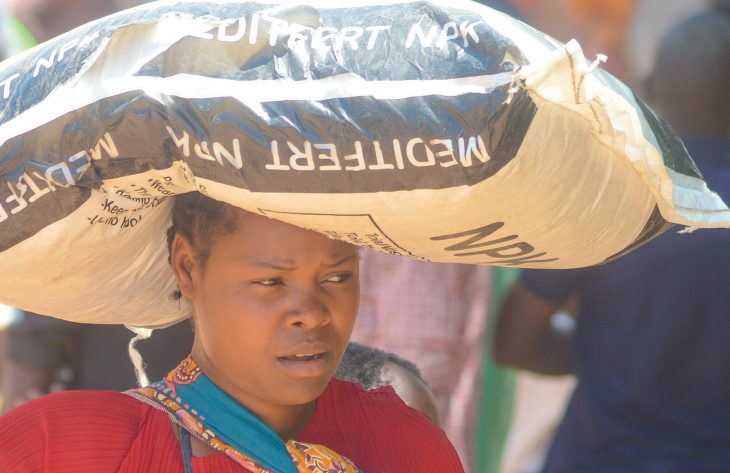
Fueling Malawi’s Growth: How the 2025 Agriculture Campaign Impacts Business and Economy
Key Business Points
- Agricultural subsidies are a key focus for Malawi’s main political parties, but experts warn that delivery, not vision, will determine their success, and that a farmer database is necessary to ensure only qualifying farmers benefit.
- Irrigation is seen as a crucial factor in improving agricultural productivity, but Malawi’s history of failed irrigation projects, such as the Greenbelt Initiative, raises concerns about the ability to deliver on ambitious targets.
- Diversification into high-value crops, such as avocados and macadamia, is a promising strategy, but experts note that inclusive models are needed to benefit smallholders, and that value chain bottlenecks, such as aflatoxin contamination, must be addressed.
As the 2025 elections approach, Malawi’s five main political parties are pitching ambitious reforms to transform the country’s agricultural sector. The Democratic Progressive Party (DPP) promises a "Green Revolution" anchored on irrigation, mechanisation, and industrial farms. The Malawi Congress Party (MCP) is rolling out the "Make Malawi Feed Malawi" campaign backed by mega farms. The People’s Party (PP) proposes anchor farms, agro-processing, and cooperatives. The United Democratic Front (UDF) is banking on avocados, macadamia, and cashew nuts tied to regional trade. The UTM Party pledges a corruption-free subsidy programme and stronger farmer-friendly markets.
However, these pledges come against a sobering reality. Despite allocating K131.6 billion to the Affordable Inputs Programme (AIP) in the 2025/26 financial year, productivity remains stubbornly low, and hunger is rising. The Famine Early Warning Systems Network (FewsNet) projects that up to five million Malawians will require food assistance between January and March 2025, mostly in the Southern Region.
Experts warn that clarity, cost, and credibility are essential for subsidy programmes to succeed. Betty Chinyamunyamu, CEO of the National Smallholder Farmers Association of Malawi, argues that a farmer database is necessary to ensure only qualifying farmers benefit, and that AIP must run on a three to five-year framework rather than shifting yearly.
The parties’ emphasis on irrigation as a silver bullet is also tempered by history. The Greenbelt Initiative launched in 2009 promised one million hectares under irrigation but remains largely stalled. Experts suggest that Malawi can learn from Zambia’s irrigation blocks or Kenya’s investment in solar-powered water pumps, but a clear financing and governance model is needed to deliver on ambitious targets.
Mechanisation and commercialisation are also key areas of focus, with parties proposing industrial farms, incentives for farm machinery, and anchor farms. However, experts question the role of government in running farms, arguing that its role is to create an enabling environment, secure land tenure, rural roads, and access to finance.
Cooperatives and market access are also crucial, with parties agreeing that farmers need better markets. The MCP has pledged to recapitalise Admarc Limited with K3.3 trillion, while the DPP wants to revitalise commodity exchanges. Experts argue that cooperatives are the game-changer, allowing farmers to hold produce and sell when prices are right, and that market discipline is necessary to discourage investment-discouraging export bans.
Diversification is the new buzzword, with parties proposing high-value crops like avocados, macadamia, and cashew nuts. Experts agree that Malawi has the agro-ecological potential, but barriers loom, including unaffordable seedlings for smallholders and value chain bottlenecks.
Finally, parties promise to move Malawi up the value chain through agro-processing hubs, model industrial farms, and rural processing plants. Experts welcome the rhetoric but point to gaps in energy, standards, and logistics, which are necessary for value addition to generate forex and jobs.
In Chichewa, the local language, this concept is known as "kugwiritsa ntchito" or value addition. As Tamani Nkhono Mvula, an independent agricultural policy expert, puts it: "Tikudikira kugwiritsa ntchito" or we need to focus on value addition to create jobs and generate forex. Ultimately, the manifestos outline bold visions, but experts converge on a sobering message: Malawi cannot afford another cycle of promises without delivery. As Nkhono Mvula puts it: "These are all doable proposals, but they will remain on paper unless Malawi addresses bottlenecks in human resources, financing, and collaboration."
What are your thoughts on this business development? Share your insights and remember to follow us on Facebook and Twitter for the latest Malawi business news and opportunities. Visit us daily for comprehensive coverage of Malawi’s business landscape.
- Malawi’s K1.2tn Gold Smuggling Scourge: A Threat to Business Growth and Economic Stability - February 1, 2026
- Revitalizing Malawi’s Economy: Lower Food Prices Signal New Growth Opportunities - January 31, 2026
- Revitalizing Malawi’s Economy: Tackling Climate Related Underfunding for Sustainable Growth - January 30, 2026
